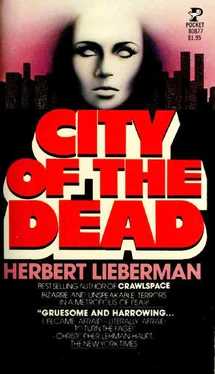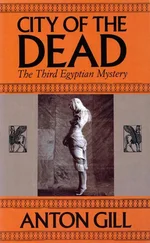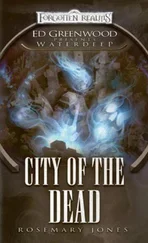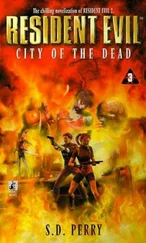On she goes, north to 14th Street, west for a few blocks along 14th, then north again on First Avenue, he trailing behind, trying not to appear conspicuous. He feels a vague sense of loathing in himself for this furtive lunatic indulgence. It’s not Lolly. He knows that. That’s perfectly clear. Turn off, he tells himself. Go back. Go back. Back to the office. Needed there. Things to do. Questions to answer. Why this madness? Still, that is the back of Lolly’s head up there. He holds his breath lest the vision pass.
Somewhere near 16th Street the girls halts and waves at someone across the street. He halts too, turning frantically to gaze into the window of a hardware store. In the next moment a young man in jeans and navy turtleneck crosses the street and joins her. He’s a big, burly youth; like the girl, in his early twenties.
Konig fumbles about, stalling there in front of the window, his eyes riveted madly to power saws, claw hammers, gallon cans of Dutch Boy and Sapolin. They are only about fifty feet up ahead of him now, and without having to look, he knows they’re both staring back at him and laughing.
He flushes, hot and mortified at the idiocy of his situation. He wants desperately to bolt, to get away from there fast. But he can’t move now without incriminating himself. Suddenly the girl is laughing louder. It’s a rather high, shrill laugh, with a spiteful edge to it. The sound of it compels him to turn and gaze at her. Instead of Lolly’s quiet, contemplative prettiness, he is staring now at a rather gaudy, pinched face twisted into harpy indignation.
“What the hell you want?” she screams. “What the hell you looking at?”
He gapes, paralyzed, unable to reply. But she’s still screaming. “Beat it, creep. Fucking old creep.” Suddenly she whips open her jacket and thrusts jutting breasts out toward him. Howls of laughter from the boy. People passing by stop to stare.
Flushed with shame, he wheels quickly and bolts, limping, out into the heavily trafficked avenue. Horns blow. Tires squeal. Cabdrivers shout oaths from quickly rolled down windows. But behind him the shrill cries, the gales of laughter, still ring in his ears. “Creep. Fucking creep.” Feeling soiled, like a molester caught red-handed at his vile work, he reaches the other side of the avenue, mortified at the sight of gaping faces staring at him—nasty smirks, frowns of disgust, glares of loathing, outraged self-righteousness, and he fleeing the awful place, the girl’s cries still ringing on the air.
“Creep… creep… creep.”
A shaft of sunlight streaming through a barred window. The floor beneath it strewn with rubble. The sound of water dripping somewhere, and, all about, the damp, rather moldy odor of a building long shut up.
12:00 Noon. The Old Salvation Army Shelter, South Street.
Sergeant Edward Flynn wanders through a labyrinth of empty rooms, the slow but regular clicking of his footsteps ringing upward through the four stories of dusty halls and furniture-crammed corridors above him. The building is an old one, built sometime in the final decades of the last century. Four stories. Red brick. Old pipes, festooned with cobwebs, traveling the length of the ceilings. Joists exposed. Paint peeling down the walls.
Beyond the dust-blown iron grating of a window, Flynn can see a jagged sprawl of skyline, a broad brown swatch of river, people rushing headlong about their business. Here, on the first floor, it is quite easy to hear the din of traffic, gulls shrieking and wheeling above the water, the great clanking sound of steamships, tied up in berths, being off-loaded onto the barnacle-encrusted piers all along the Lower East Side waterfront.
Flynn is standing now in what was once a recreation room. Broken furniture, one piece atop another, is stacked all along the walls. Here is a large, ancient console-model television, its wires disconnected, innards eviscerated and pillaged. There, in the center of the floor, is a Ping-Pong table, net sprung, listing precariously on three legs. Stacks of old magazines are tied up in cords and stashed all along the walls— Life, Look, Collier’s, Saturday Evening Post —publications long-extinct, out of whose faded covers peer glossy portraits of celebrated people, long since dead.
Flynn’s lagging footsteps take him out into another long corridor. More furniture stacked in the cool, dusty, mote-filled shadows. Steel desks, file cabinets, swivel chairs, water coolers, wastebaskets stored one inside the other.
Another turn, a twist, and then a long, greenish dining hall veers suddenly into view, rows and aisles of refectory tables, wood benches piled upside down upon them. At the head of the room, serving tables, steam tables, glass display cases, huge aluminum coffee urns, the scene, Flynn imagines, of many a Christmas past. The long lines of derelict and outcast, shaggy and unwashed, shuffling quietly past the steam tables, cup and plate outstretched. A bit of turkey and cider, a slice of mince pie, some warmth and companionship, a brief furlough from the cold, mean streets.
Flynn moves on slowly, almost dreamily, through the room. It is full of that musty forlorn air of places long deserted and fallen into desuetude. But the hushed gloom of it all is strangely comforting. His footsteps lead him nowhere in particular. What he’s looking for he cannot say.
On past the steam tables, through the swinging door, and into a huge kitchen in the back. More barred windows, these so high you cannot see out them. Scullery and cupboards, big, old gas ranges, zinc-lined walk-in refrigerated lockers, their doors hanging open. Then aisles of cabinets full of cheap white crockery, much of it cracked; shelves from floor to ceiling, with still an occasional pan, skillet, poacher—all battered, punctured, deemed even unworthy of common pilferage.
A sudden bang. Flynn wheels in time to see a board clatter to the floor and a huge gray rat wamble off into the shadows.
Now a dormitory, that saddest of rooms. Here numberless people, strangers all, lay down together for a night or two of rest. Aisles of rusty steel cots. Rusty springs. Mattresses thin as pancakes, with urine-stained ticking, rolled up neatly at the foot of each cot. An old shoe on the floor beneath a cot; a moldering suit jacket hanging limp and disembodied on a wire hanger. Naked light bulbs depending from long, frayed wires. At the head of the room a large plaster crucifix; an infinitely sorrowing Christ, His nose broken off, His toes nibbled by rodents, gazes down upon the scene.
The place still has the sour, fetid smell of the flophouse. Strong disinfectant, human perspiration, and filth. Flynn fancies he can even hear the endless hacking coughs through the night, the stifled cry of bad dreams or delirium tremens. He moves on, drawn ever upward into the thickening shadows.
Why am I here? he asks himself. What do I expect to find? This alleged Salvation Army figure seen by several shopkeepers as well as a resident of the neighborhood? They’d all said the same thing. They’d seen such a person going in and out of the shack near Coenties Slip. How in God’s name was he to find this person? And even given the miracle of turning up such a person, it was highly improbable that this would be his man. If such an individual did actually exist, then most probably he was a legitimate Salvation Army officer who’d stumbled inadvertently into that desperate little warren of outcast men and tried in some small way to help them.
No, the man he was looking for was undoubtedly one of the residents of that shack. One of the desperate, harried men who cowered there through the long, dismal winter months, feeding on scraps, panhandling an occasional pint of muscatel, and waiting for a break.
Читать дальше












